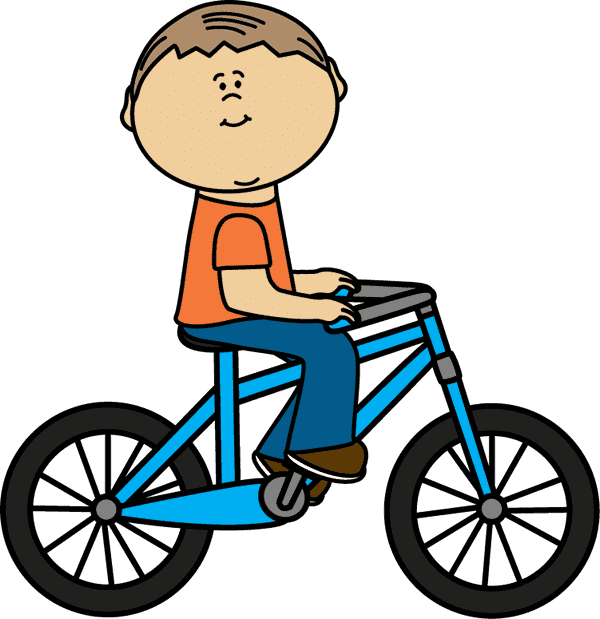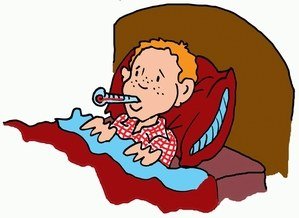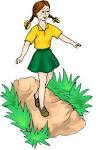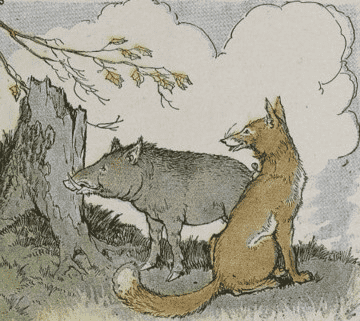Every sentence must begin with a capital letter and end with a full stop.

Example: Milo rides a bicycle.
Always check what you have written. Every sentence should make sense. Thus the order in which we arrange words in a sentence should make sense. Changing words around changes the meaning of the sentence.
Example: Milo rides a bicycle. A bicycle rides Milo.
The handy Participle
A participle is a form of a verb that is used as an adjective.

There are two kinds of participles.
- Present participle that ends in –ing, and
- The past participle that usually ends in –ed, –d, or –n.
They are handy in forming interesting sentences. Lets examine it use in sentences.
Example:


Participles modify nouns or pronouns within sentences.
Example: Broken, the glass window reflected the blue sky.
Another example:

Crying, the hungry boy went to bed early. (modify nouns)

PARTICIPIAL PHRASES
Participial Phrases are a group of words (with a participle) that function as an adjective. They add details to nouns and pronouns within sentences.

Here we add details to nouns and pronouns: Lying in bed, Tom thought of all the things he would do once he got better.
Participial Phrase is used to add details within a sentence.
Example:
The boy was worried that he might be in bed for a week and got up .
The boy, concerned about staying in bed for week, got up. (Here the participial phrase eliminates the passive voice and makes it active.)
DANGLING PARTICIPLES
A participle phrase is said to be dangling when it does not modify the noun or pronoun that follows. Avoid forming sentences in such a way.
Example:

Corrected: Laughing loudly, the boy rolled on the floor while his friend watched.
GERUND PHRASE
A gerund phrase is the present participle form of a verb. It includes the gerund and all words related to it.

Gerund Phrase: Walking outside for a while, the girl always found it made her happy.

ABSOLUTES
These are nouns combined with the present participle of a verb (-ing ending) or the past participle (-ed, –d, or –n ending).
Example: Jaw cracking, hands disfigured.
When absolutes are used at the beginning of a sentence it is always powerful.

Direct Speech
When we write down the direct speech of someone, we put the words they actually say inside special marks, quotation marks.

Observe the direct speech in the Aesop Fable below. Source. The words spoken by the ducks, tortoise, and crow are place in quotation marks. The first commas ” are placed just before the first word spoken. The last commas ” are placed just after the last word spoken. Question marks and exclamation marks are place before the last commas.
THE TORTOISE AND THE DUCKS
The Tortoise, you know, carries his house on his back. No matter how hard he tries, he cannot leave home. They say that Jupiter punished him so, because he was such a lazy stay-at-home that he would not go to Jupiter’s wedding, even when especially invited.
After many years, Tortoise began to wish he had gone to that wedding. When he saw how gaily the birds flew about and how the Hare and the Chipmunk and all the other animals ran nimbly by, always eager to see everything there was to be seen, the Tortoise felt very sad and discontented. He wanted to see the world too, and there he was with a house on his back and little short legs that could hardly drag him along.
One day he met a pair of Ducks and told them all his trouble.
“We can help you to see the world,“ said the Ducks. “Take hold of this stick with your teeth and we will carry you far up in the air where you can see the whole countryside. But keep quiet or you will be sorry.“
The Tortoise was very glad indeed. He seized the stick firmly with his teeth, the two Ducks took hold of it one at each end, and away they sailed up toward the clouds.

Just then a Crow flew by. He was very much astonished at the strange sight and cried:
“This must surely be the King of Tortoises!“
“Why certainly——“ began the Tortoise.
But as he opened his mouth to say these foolish words he lost his hold on the stick, and down he fell to the ground, where he was dashed to pieces on a rock.
Foolish curiosity and vanity often lead to misfortune.
Speech can also be written as reported speech. Reported speech does not use speech marks. Observe the Aesop Fable below. The speech marks have been remove, the speaker’s exact words are not used and the verbs have been changed.
THE WILD BOAR AND THE FOX
A Wild Boar was sharpening his tusks busily against the stump of a tree, when a Fox happened by. Now the Fox was always looking for a chance to make fun of his neighbors. So he made a great show of looking anxiously about, as if in fear of some hidden enemy. But the Boar kept right on with his work.

With a grin, the Fox asked the Boar as to why he was doing what he was doing. He added that he could not see any danger.
The Boar replied that that was true, but if danger did come he would not have time for such works. The Boar continued explaining that his weapons will have to be ready for use then, or he will suffer for it.
Preparedness for war is the best guarantee of peace.
